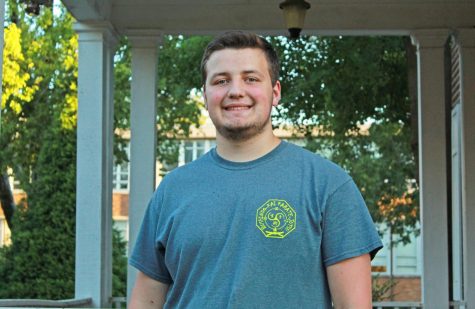Sutton: Why the U.N. won’t stop the Hong Kong crisis
August 22, 2019
Hong Kong is a bustling metropolis of industry and technological advancement. This massive city boasts consulates from over one hundred and fifteen countries and hosts hubs of business such as FedEx and Disney. The city also has an extremely successful economy with an average GDP of about $363 billion, and its multiple theme parks and vibrant culture attracted over 30 million tourists between January and May in 2019 alone.
But, Hong Kong has a darker side that world news has recently shed light on due to violent clashes between otherwise peaceful protesters and Chinese Police.
To fully understand this cultural debacle, one must go back to the historical significance of the territory of Hong Kong. In short, the entire island of Hong Kong was once owned by the British Empire, but was given back to China in 1997 after about one hundred and fifty years of British rule. The island was given back to China under the condition that it would be run under the “two systems one country” idea, which meant that Hong Kong would be a part of China, but would have the ability to elect its own leaders and pass its own legislation. This condition would only be in place for 50 years, meaning that in the year 2043, China is set to fully take over the entire Hong Kong territory. The issue is that the people of Hong Kong do not want to be a part of China and they should not have to be.
Because of the “two systems one country idea,” the people of Hong Kong have many freedoms that the people of mainland China lack. The protesting that occurs frequently in Hong Kong usually occurs because the leaders and laws that have been put in place by the Chinese leaders in Beijing are not wanted by the people. For example, the most recent protest in Hong Kong comes from a proposed piece of legislation in Hong Kong government that states that Hong Kong prisoners could be extradited to mainland China for trial. This law immediately sparked outrage because of the implied idea that China would use this law to arrest critics of the Chinese government and transport them back to mainland China. To stop this, and to show their dislike of their rule by Chinese elite, many Hong Kong residents took to the streets with peaceful protests and examples of civil disobedience. These peaceful protests began in July and have continued into August.
The terrible part of this entire situation is that the Chinese response to these protests involves extreme police violence. These protesters have been met with over eighteen-hundred canisters of expired tear gas, and over three hundred rubber bullets have been fired into large groups of people. These crowds have also been harried by triads of Chinese nationalist gangs, armed with metal pipes and knives. The extreme amounts of violence inflicted upon otherwise peaceful protestors clearly violates multiple codes and some Humanitarian groups (such as the IFMSA) say that this violence even violates the Geneva convention.
At this point, these atrocities should be brought before the United Nations to be stopped because of the sheer amount of violence, and the violation of the Geneva convention. Many might say this should not concern the United Nations because it is an internal conflict. To that, I point to Sadaam Hussein’s bombing of the ethnic Kurds in his own country of Iraq, to say at some point the U.N. will realize that the violation of human rights is not an internal issue, but rather an international one. The real reason that these atrocities have gone unanswered is because of China’s insanely influential economy. A large part of the world’s products are produced in China, and many countries, especially those with weaker economies, depend on trade with this superpower to function and grow. China wants Hong Kong, and any attempt at stopping them could trigger a trade war with many developing economies being on the losing side. China has already begun to shoot down the protests in Hong Kong, and if anyone has anything bad to say about it, the still smoking gun will be turned upon them.
The U.N. won’t stop these human rights violations, but the matter still stands that something needs to be done to stop this. Even though no one in the world government thinks that the lives of the people of Hong Kong matter, does not make that their lives are any less valuable. The people of this world need to know that not even an entire country is above the law, and just because China is a powerful country, that still does not give them the right to torture its own citizens.
China is set to fully take control of Hong Kong in 2047, and if nothing is done to put out these fires, the next Tiananmen Square won’t just be a city block, but an entire province of China.








